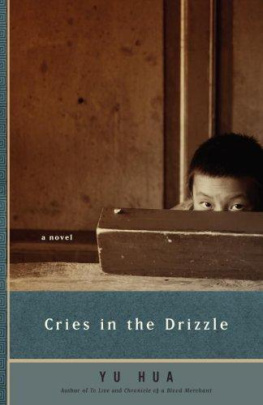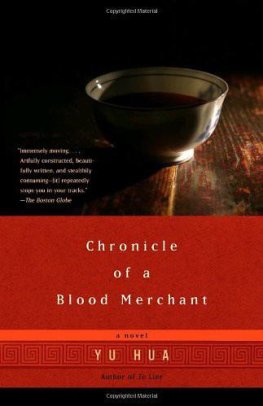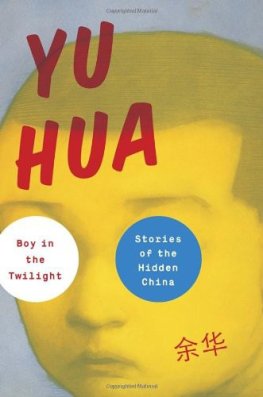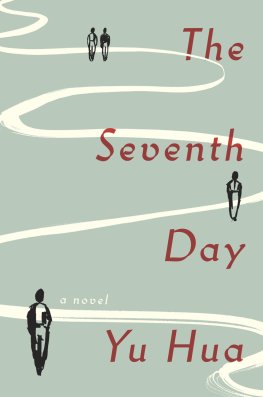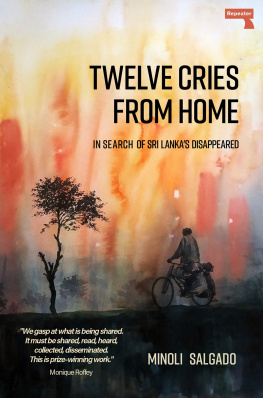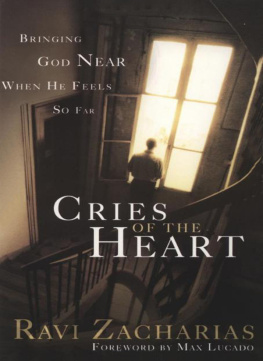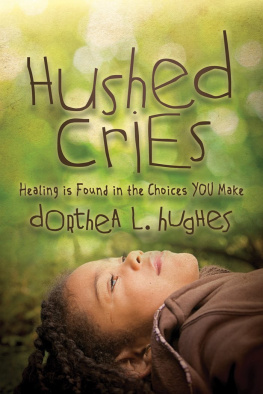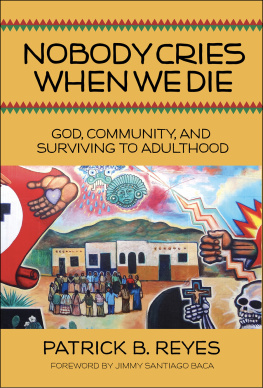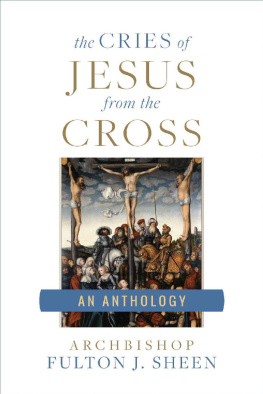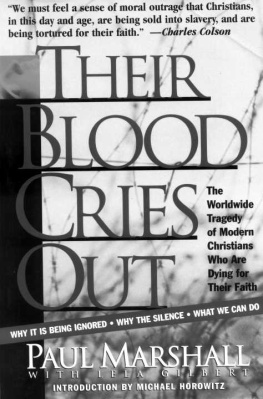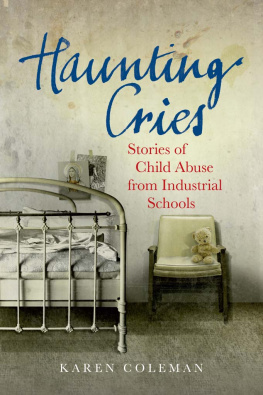Yu Hua - Cries in the Drizzle
Here you can read online Yu Hua - Cries in the Drizzle full text of the book (entire story) in english for free. Download pdf and epub, get meaning, cover and reviews about this ebook. year: 2007, publisher: Anchor, genre: Detective and thriller. Description of the work, (preface) as well as reviews are available. Best literature library LitArk.com created for fans of good reading and offers a wide selection of genres:
Romance novel
Science fiction
Adventure
Detective
Science
History
Home and family
Prose
Art
Politics
Computer
Non-fiction
Religion
Business
Children
Humor
Choose a favorite category and find really read worthwhile books. Enjoy immersion in the world of imagination, feel the emotions of the characters or learn something new for yourself, make an fascinating discovery.
- Book:Cries in the Drizzle
- Author:
- Publisher:Anchor
- Genre:
- Year:2007
- Rating:4 / 5
- Favourites:Add to favourites
- Your mark:
- 80
- 1
- 2
- 3
- 4
- 5
Cries in the Drizzle: summary, description and annotation
We offer to read an annotation, description, summary or preface (depends on what the author of the book "Cries in the Drizzle" wrote himself). If you haven't found the necessary information about the book — write in the comments, we will try to find it.
Cries in the Drizzle — read online for free the complete book (whole text) full work
Below is the text of the book, divided by pages. System saving the place of the last page read, allows you to conveniently read the book "Cries in the Drizzle" online for free, without having to search again every time where you left off. Put a bookmark, and you can go to the page where you finished reading at any time.
Font size:
Interval:
Bookmark:
ALSO BY YU HUA
Chronicle of a Blood Merchant
To Live
The Past and the Punishments
SOUTH GATE
It was in 1965 that nighttime began to stir in me a nameless dread. I am thinking now of that evening when a light rain drifted down. In my bed I lay, a child so little you could have set me there as easily as a toy. The dripping from the eaves simply called attention to the silence that surrounded me, and the steady onset of sleep was but a gradual forgetting of the rain's patter. As I glided peacefully into slumber, it was as though a secluded path had appeared before me, opening a passage between trees and shrubs. Then from far away there came the sound of a woman's anguished wails. When those hoarse cries erupted so suddenly in the still of the night, the boy that I was then shivered and quaked.
I can see myself now, a startled child, eyes wide with fear, the precise outline of my face obscured by the darkness. The woman's cries persisted. Anxiously, I expected to hear another voice, a voice that would respond to her wails, that could assuage her grief, but it never materialized. I realize now why I was gripped by such intense disquiet: it was because I waited in vain for that answering voice. Surely there is nothing more chilling than the sound of inconsolable cries on such a desolate night.
A second memory comes hot on the heels of the first: three or four white lambs trotting across the grass by the riverside, a daytime image, a way of easing the agitation evoked by the previous memory. But I find it hard to decide just where I was when this sight left its mark on me.
Several days may have passed before I seemed to hear a voice that answered the woman's cries. It was late afternoon. A storm had just passed, and dark clouds filled the sky like billows of smoke. I was sitting by the pond behind the house, and out of the damp landscape a man I did not recognize walked toward me. He was dressed completely in black and as he approached his dark clothes waved like a banner under the gloomy sky. When this image began to close in on me it brought to mind the unmistakable sound of the woman's cry. Even from far off in the distance the stranger fixed me with a piercing gaze, and he continued to stare at me as he drew nearer. Just as I was about to panic, he abruptly changed direction, mounted the path on the edge of the field, and gradually moved farther and farther away, his loose black clothes flapping loudly in the breeze. Now, when I look back on the past from an adult point of view, I always linger long on this particular moment, puzzling over why it was that I interpreted the rustling of his clothes as a response to the woman's cries in the evening drizzle.
Then there is a morning I remember, a crystal-clear morning when I was scampering along behind some village boys, over soft earth and windblown grasses. The sunshine at that moment seemed to be a matter not so much of dazzling light as a warm color daubed on our bodies. Like the lambs on the riverbank we bounded along, running for ages, or so it seemed, until we arrived outside a dilapidated temple from which enormous cobwebs caught my eye.
It must have been a little earlier that one of the village boys had come tramping over from a spot far off in the distance. I still remember that his face was drained of color and his teeth were chattering. There's a dead man over there, he said.
The body was lying beneath the cobwebs. It was the same man who had walked toward me the day before. Although I try now to recapture my feelings at that moment, the effort fails. My memory of that incident has been stripped bare of the reactions I had at the time, and all that is left is the outer shell: the associations it now carries simply reflect my current outlook. For me as a six-year-old the sudden death of a strange man could have prompted only a quiver of astonishment and would not have been the occasion for much hand-wringing. He lay faceup on the moist earth, eyes closed, with a relaxed and peaceful expression on his face. I noticed that his black clothes were stained with mud, mottled the way a country path is spotted with somber, anonymous flowers. It was the first time I had seen a dead man, and it looked to me as though he was sleeping. That must have been the extent of my reaction then: that dying was like falling asleep.
After that I dreaded the night. I saw myself standing at the entrance to the village and pictured the gathering darkness surging toward me like floodwater, engulfing me and then swallowing up everything else. I would lie in the dark for ages, not daring to fall asleep, and the silence all around simply intensified my terror. Again and again I would wrestle with sleep. My antagonist strove with all its might to seize me in its powerful grip, and I desperately resisted. I was afraid that once I fell asleep I, like the stranger, would never wake up again. But in the end I was always reduced to exhaustion, sucked helplessly into slumber. When I woke up the following morning and discovered I was still alive, the sunlight poking through the crack in the door, I was overjoyed to find that I had been spared.
When I think back to when I was six years old, one last scene comes to mind. Here again I see myself dashing along at full speed, and in my memory I relive the former glory of the boat-builders yard in town, and the day when their first-ever concrete boat was making its way down the river into Southgate. My big brother and I were running toward the riverbank. How bright was the sunlight of those bygone days, illuminating my still-young mother, her blue-checked headscarf fluttering in the autumn breeze; my little brother was seated in her lap, his eyes wide with wonder. My father, with that penetrating laugh of his, clambered barefoot onto the ridge between the fields. But what was that tall man in the army uniform doing there? He seemed to have arrived by chance at my parents side, like a leaf blown into a thicket.
The riverside was packed with people. My brother showed me how to squeeze through their legs, and a clamor of voices enveloped us. When we finally crawled into a spot overlooking the river, we stuck our heads out between two grown-ups trouser legs and gazed around like a pair of turtles.
The moment of highest drama was announced by an ear-splitting din of gongs and drums and the cheers of the crowd assembled on the banks. The concrete boat was coursing toward us. Long ropes hung down its sides, with pieces of colored paper fastened to them like so many flowers blooming on a vine. A dozen young men on board were banging gongs and beating drums.
Hey, what's that boat made of? I called to my brother.
He turned his head and answered with a shout, Stone.
Then why doesn't it sink?
You idiot, he said. Can't you see the ropes?
It was at this point in my life that the burly figure of Wang Liqiang appeared in his military uniform, imposing on my memories of Southgate a five-year hiatus. He took me by the hand and led me off toward a steamboat with a piercing whistle. It would carry me down an endless river, to a town called Littlemarsh. I didn't know then that my parents had given me away and I was under the impression that this trip was going to be a pleasurable excursion. On the narrow dirt road I ran into my grandfather, now racked by pains and aches. I answered his troubled gaze with a complacent announcement: I don't have time to talk to you now.
Five years later, as I returned alone to Southgate, I was to run into Granddad again on this same road.
Not long after I moved back home, a family from town by the name of Su carne to Southgate to live. One summer morning the two boys of the Su family carried out a small round table and placed it in the shade of a tree. They began to eat breakfast.
This is what I saw then, when I was twelve. The two town boys were sitting there in their store-bought shirts and trousers while I sat alone by the pond in my homespun shorts. I watched as my fourteen-year-old brother led my nine-year-old brother toward our new neighbors. Like me, they were shirtless and dark as two loaches in the sun.
Next pageFont size:
Interval:
Bookmark:
Similar books «Cries in the Drizzle»
Look at similar books to Cries in the Drizzle. We have selected literature similar in name and meaning in the hope of providing readers with more options to find new, interesting, not yet read works.
Discussion, reviews of the book Cries in the Drizzle and just readers' own opinions. Leave your comments, write what you think about the work, its meaning or the main characters. Specify what exactly you liked and what you didn't like, and why you think so.

